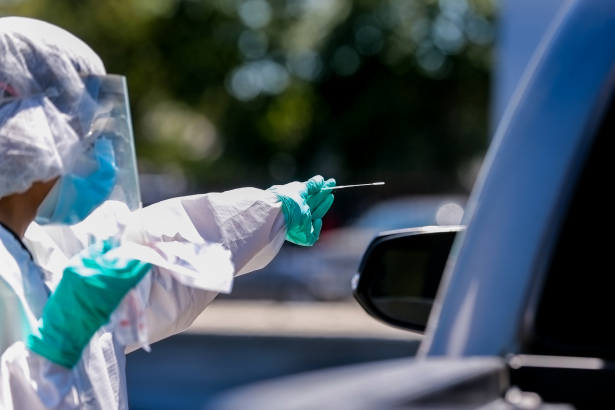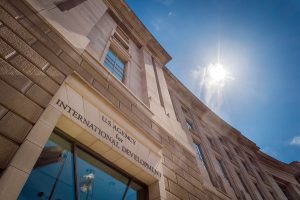*** The Pac-12 Hotline newsletter is published each Monday-Wednesday-Friday during the college sports season and twice-a-week in the summer. (Sign up here for a free subscription.) This edition, from Sept. 4, has been made available in archived form.
Thursday brought yet another relentless cycle of college football news, beginning with eye-popping report on myocarditis data (that was later dismissed) and ending with the momentous testing news from the Pac-12 that could accelerate its football restart.
But there was another development, one that didn’t generate thunderous response but was significant nonetheless.
ESPN published a report on Covid-19 testing within the Power Five that focused on the schools’ transparency — or lack thereof — in reporting the data.
The Hotline believes results should be made public in a pandemic because, well, it’s a pandemic.
It’s not a sprained ankle or hip flexor injury.
This is about public health, not gaining a competitive edge on Saturday.
Schools refusing to report results are hiding behind student privacy laws that don’t apply.
No one is asking for the names of athletes who test positive.
But the raw numbers matter: How many test were administered within a certain timeframe? How many results were positive?
Unfortunately, many schools weren’t willing to share their data with ESPN:
“In response to a series of questions from ESPN about their COVID-19 testing protocols, almost half of the 65 schools in the Power 5 conferences declined to share data about how many positive tests their programs have had to date. Nearly a third of the schools overall declined to provide information about protocols in addition to withholding the number of athletes who have tested positive.”
And unfortunately, five schools in the Pac-12 have refused to release test results.
All five are public: Oregon, UCLA, Arizona State, Colorado and Utah.
If the private schools are willing to make their results public, why should the public schools keep their data private?
It’s deeply disappointing.
A few highlights from the ESPN report that are specific to the Pac-12:
• “Among the 10 schools that completely answered all of ESPN’s questions, four still plan to play fall sports — Clemson, Iowa State, Missouri and Oklahoma. The six other schools that fully responded are in the Big Ten (Iowa, Michigan, Michigan State and Wisconsin) and the Pac-12 (Oregon State and Stanford), which postponed fall sports.”
• “Utah, which isn’t playing fall sports this year, was the only Pac-12 school that declined to answer all of ESPN’s questions. A spokesman for Utah directed ESPN to Utes athletics director Mark Harlan’s comments on why his department would not release the numbers of positive tests. ‘That’s me. I’ll own that decision.’”
• “Of the 26 schools that answered the question about heart-related conditions for student-athletes, only one school — Oregon State — reported having an athlete who developed heart-related issues after contracting COVID-19, but the school stated it was not myocarditis, an inflammation of the heart muscle.”
• Arizona and USC are providing the number of positive tests but not the total number administered, according to ESPN.
• Of the five schools in the Pac-12 that revealed both total tests and positive tests, ESPN reported a mere 47 positives, out of 4,918 administered. That’s a positivity rate of one percent. — Jon Wilner
• The Pac-12’s partnership with Quidel on point-of-care testing is a “game changer,” according to commissioner Larry Scott, although the conference has one more hurdle to clear: Local health restrictions that make routine practices difficult for half the teams.
• The Hotline published commentary on the momentous news Thursday evening and raised the prospect of non-conference games this fall/winter, given the likely alignment of testing procedures and protocol. Why not arrange a series of Big Ten vs. Pac-12 matchups? Why not bring Michigan and Ohio State to the west coast as originally scheduled?
• For months, college football insiders have engaged in low-level chatter about the pandemic sparking another round of conference realignment. The Hotline believes it’s already underway, just not in the form we’re used to seeing: The Big 12 lies at the heart of a southeasterly shift that could further isolate the Pac-12.
• The Tuesday newsletter examined the frequent use of consultants by the Pac-12 in recent years and pegged the cost of that expertise at more than $1 million. Previous editions of the newsletter are available in archived form.
Support the Hotline: Several Hotline articles will remain free each month (as will the newsletter), but for access to all content, you’ll need to subscribe. I’ve secured a rate of $1 per week for a full year or just 99 cents for the first month, with the option to cancel anytime. Click here. And thanks for your loyalty.

(Note: The Hotline newsletter includes links to sites that could require a subscription once the number of free views has been reached.)
• Arizona Daily Star columnist Greg Hansen unloads on commissioner Larry Scott and the direction of the conference. “It’s time to declare that Scott’s shelf life is over; it’s time to admit that those who pursued and ultimately approved the acquisition of Scott 11 years ago strayed too far from the collegiate model. It just didn’t work effectively. Square peg, round hole.”
• Washington State quarterback John Bledsoe, son of Drew, is in the transfer portal.
• A former Pac-12 quarterback, USC’s JT Daniels, is now the presumptive starter for Georgia after Jamie Newman opted out of the season. Rivals analysts debate whether this is good news or bad for the Bulldogs.
• In a development that could impact rosters for a winter/spring season, the NCAA’s Football Oversight Committee does not favor immediate eligibility for early enrollees (i.e., freshmen and transfers). That could undercut rosters depleted by NFL Draft attrition.
• Not related to the Pac-12 directly but worthwhile nonetheless: CBS Sports columnist Dennis Dodd addresses the potential for a significant number of opt outs this fall, a movement driven by — you guessed it — sports agents. “We’ve opened it up for these agents who can continue to drill, drill, drill, drill, drill, drill.”
• Hot seat? Because of Covid, nobody’s on the hot seat this season, writes USA Today columnist Dan Wolken.
• The Pac-12 has launched a voter-registration drive as part of its social justice and anti-racism efforts. The football and men’s basketball coaches proposed the idea, which is designed to assist with vote-by-mail ballots for all eligible athletes.
Perspective on the Pac-12 from beyond its borders …
• Yahoo columnist Dan Wetzel has kind words for the oft-maligned conference in the wake of the Quidel announcement. “Rapid, daily testing was always the key to the return of sports, the return to normalcy. The Pac-12 has their system lined up. Maybe it’s too late to get started with some of the other leagues in some form of fall ball, but a little late and done properly is a pretty nice consolation. Or it sure looked that way for Larry Scott on Thursday.”

• November 25th has emerged as the preferred start date for the basketball season, per a report from CBS Sports. The revised calendar must be approved by the NCAA Council on Sept. 16. The Hotline expects the Pac-12 to move its return-to-play date from Jan. 1 to early December — if not Nov. 25 — assuming local health restrictions allow.
• Here’s Washington coach Mike Hopkins to the Seattle Times, following the Quidel news: “I’m very optimistic that we’ll have a season. I think we definitely will, especially with the way this testing and partnership has moved forward.”
• Guard James Akinjo, a heralded transfer from Georgetown — and former Big East freshman of the year — has been cleared by the NCAA to compete this season for Arizona. Consider him a contender for all-conference honors.
• The best player in the Pac-12 is a left tackle whose childhood home in American Samoa “was the size of a garage. It had a single bedroom, used mostly as a giant closet. All seven members of Gabriel Sewell’s family slept on futon mattresses on the living room floor.” And so begins a fabulous deep dive into the life of Oregon’s Penei Sewell, from columnist John Canzano, who notes: “When the Sewell family made the move to Utah, the kids weren’t used to having their own bedrooms. They were understandably slow to acclimate. ‘The boys still camped out in the living room for a couple of months.’”
What’s coming on the Pac-12 Hotline:
• Our publication plans have been derailed by breaking news time and again during the pandemic. Such was the case this week, as well, leaving several columns in a holding pattern. That includes our far-outside-the-box idea for the Pac-12 Networks and a series on the conference’s efforts to increase diversity. Both are (tentatively) scheduled for next week.
• Exactly what must happen for the California and Oregon teams to receive full clearance from their local health authorities? We’re heading into the wormhole of state and county ordinances. If you haven’t read anything on the Hotline by Wednesday, please alert the, um, local health authorities.
• We are formulating plans to cover the college football scene this fall, even without the Pac-12 involved. (My AP ballot will be published each weekend, of course.) If readers have ideas for regular content on the national scene, please email me at the address below. (No guarantees, but I’d like to hear your suggestions.)
The next newsletter is scheduled for Wednesday. Like it? Please forward this email to friends (sign up here). If you don’t, or have other feedback, let me know: [email protected].
*** Follow me on Twitter: @WilnerHotline
*** Pac-12 Hotline is not endorsed or sponsored by the Pac-12 Conference, and the views expressed herein do not necessarily reflect the views of the Conference.



















